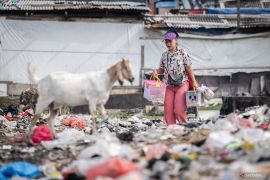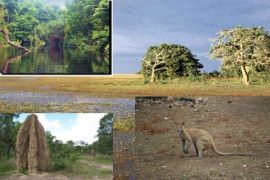"ENSO is not only a threat to national food security, but also to the biodiversity in the country," Dean of the Biology Faculty UGM Budi Setiadi Daryono said.Yogyakarta (ANTARA News) - La Nina, which is a series of El-Nino Southern Oscillation (ENSO), could be a threat to the preservation of Indonesias biodiversity, Dean of the Biology Faculty, Gadjah Mada University in Yogyakarta, Budi Setiadi Daryono, said.
"ENSO is not only a threat to national food security, but also to the biodiversity in the country," Budi said here on Thursday.
According to him, the loss of biodiversity in the long term will lead to ecosystem degradation and systemic damages.
He said La Nina which brings higher rainfall accompanied by an increase in average temperature and relative humidity will pose a threat to the ecosystem and can cause natural selection.
La Nina will create a bottleneck effect for species that have low tolerance when temperature is rising and submersion occurs due to high rainfall and humidity, like the ones that take place in meadow ecosystems in Nusa Tenggara, part of East Java, and Bali.
Budi explained Indonesias indigenous flora and fauna could be endangered or at least experiencing unfavorable selection pressure.
The sex of green turtle (Chelonia mydas L.) is highly influenced by the temperature conditions during the hatch time. At temperature over 29 degrees Celsius, the turtles are generally female, while at less than 29 degrees Celsius generally they will be male, he said.
"If the ambient temperature is over 33 degrees Celcius, the hatchlings will die," Budi, who is also the Chairman of Indonesian Biology Consortium, said.
He added climate anomalies cloud occur due to human activity. Therefore, it is important to preserve biological resources and environment.
"If biological resources and environment continue to be maintained, it will support national food security," he said.(*)
Editor: Heru Purwanto
Copyright © ANTARA 2017











